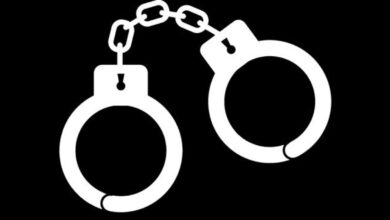Donkey, horse, buffalo, Pappu, Mr Bantadhar figure among 1,160 unparliamentary words

Bhopal: Donkey, horse, buffalo, dog, several other animals’ names, Pappu, Mr Bantadhar, Julmi Mama and other adjectives used for politicians find mention in among more than 1160 unparliamentary words, phrases and sentences, a compilation of which was released by Assembly Speaker Girish Gautam on Sunday. CM Shivraj Singh Chouhan, leader of Opposition Kamal Nath, parliamentary affairs minister Narottam Mishra, chief whip of CLP Govind Singh were present. The words, phrases and sentences compiled in the book are the words expunged during the assembly’s proceedings on being found unparliamentary by the speakers, since Sept 23, 1954. For instance, Sasur (father-in-law) is the first word in the book, which was expunged during the assembly proceedings on Sept 23, 1954. Dirty face (used for the government), 420, jhooth, chor ka bhai girahkat, dhobi ke kutte ki tarah, jhooth, safed jhooth and even sayings like ‘Bhains ke aage been bajana, bhains khadi paguraay’ were found unparliamentary from 1954 to 1960.
Mythological characters like Duryodhyan, Mandodari and Dhritrashtra too find mention in the book. There is interesting reference to Pakistan in a sentence ‘Saare gadhe Pakistan chale gaye’. It has also been found unparliamentary. So was found, ‘Kitna commission America se lekar aaye hain? The other objectionable words, phrases etc include beimaan, tanashaah, pagalkhana, nikamme, nalayak, badmash, burha sher, gaddar, dusht, bakwaas, history-sheeter, shaitaan, lafanga, rajnaitik goonde, blackmail, kaayar, vidushak, mithya bhashan, postman, saavan ke andhe ko hara hi hara nazar aata hai, dhongi, paakhandi, Pappu paas ho jayega, Vyapam, Nautanki, ghariyali aansoo, frog, crow, rat, cat, etc.Addressing the gathering, the CM said some of the words and said, “Even I didn’t know if some of these words as printed in the book are unparliamentary. In the heat of the moment we often use such words, which we should avoid.” Leader of Opposition Kamal Nath said, “Our conduct is watched by people, hence we should be dignified in our choice of words and language.”





